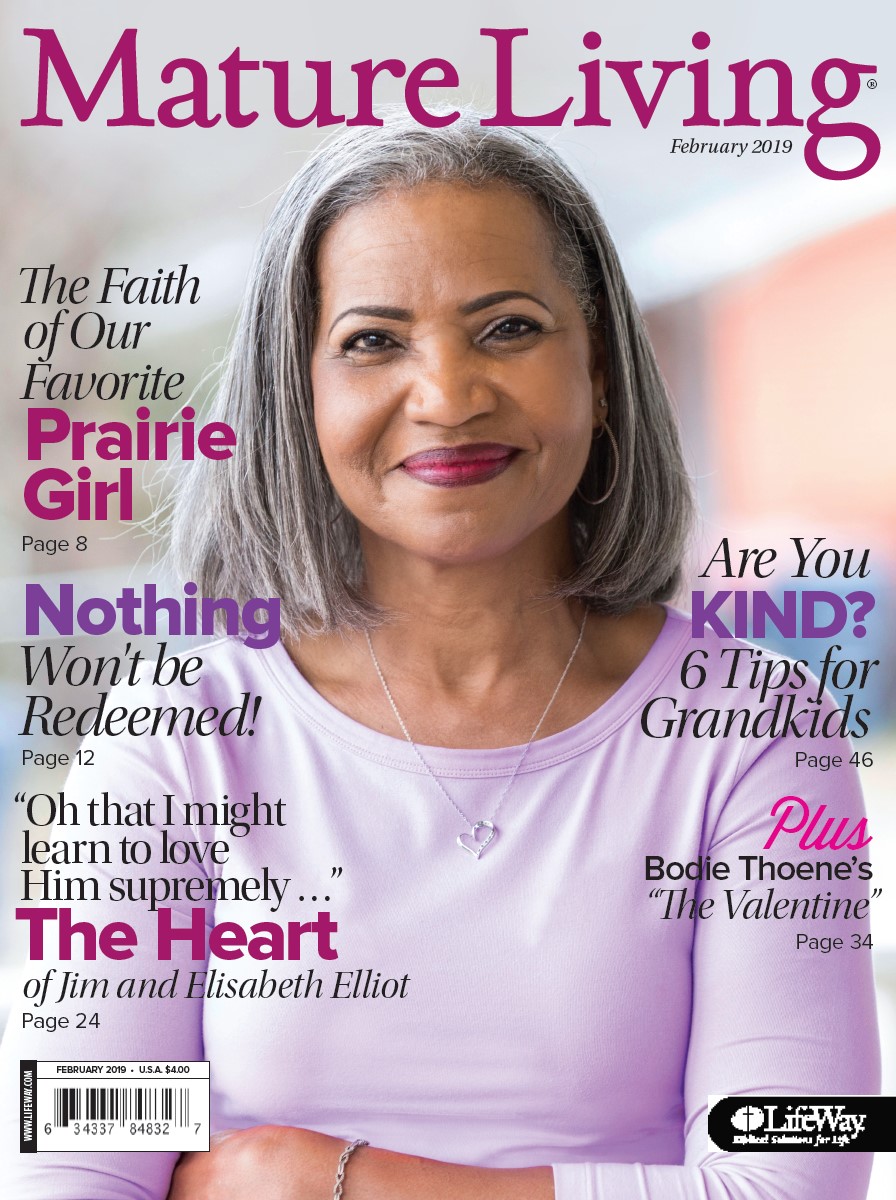 Let It Go
Let It Go
Oh, the joy we’ll have when we finally forgive!
by VICTORIA YORK
I RECENTLY HEARD the story of Clara, a woman in her 70s who refuses to forget a decades-old incident. It seems Clara was looking forward to inheriting a diamond ring from a relative — until she discovered her brother had inherited it instead and then gifted it to his wife. Clara was livid. He was her only sibling, but their relationship was never the same. Many years later, she could frequently be heard venting her anger to whomever would listen. Clara felt cheated and wasn’t about to let her brother off the hook.
In Matthew 6, the disciples asked Jesus to teach them to pray. Part of His response, the Lord’s Prayer, deals with forgiveness: “Pray like this: Our Father in heaven, … forgive us our debts, as we also have forgiven our debtors” (Matt. 6:9,12). Soon after, Jesus would embody forgiveness by asking the Father to pardon those who had accused Him falsely, tortured Him, and then nailed Him to a cross. (See Luke 23:34.) He offered undeserved kindness and mercy even though He knew some would reciprocate with hatred and scorn.
Now He asks us to follow His example. He’s saying, in essence, “Come to Me for forgiveness, and I’ll grant it; but know that I’m counting on you to do the same for those who offend you. I expect you to consider their debts paid in full, just as I’ve done for you.” In our gratitude for His grace, we should be falling all over ourselves to comply, yet most of us find it difficult to forgive. Sometimes, in fact, it can feel downright impossible.
cases involving violent crime, infidelity, parental abuse, and the like. But the truth is that countless relationships are damaged or even destroyed by the most trivial offenses. Many a friendship has been ruined by one person’s overreaction to another’s careless comment. Granted, it never feels good to be ill treated, but most of the time, the circumstances simply aren’t worth getting bent out of shape. Some issues require mediation, counseling, and persistent prayer, but sometimes, as in Clara’s case, we simply need to let it go.
So why don’t we? Why do we waste precious years nursing grudges for petty insults and misunderstandings? Of course, there is the most obvious and typical reason: We’re unwilling to offer the mercy Jesus has granted to us. We want our offender to pay for his mistakes, and wiping the slate clean feels like too much to ask. But there are other, more subtle reasons, too, and all of them hinge on self-interest:
SELF-RIGHTEOUSNESS
We humans love to feel superior and play the martyr. Harboring a grudge allows us to feel more virtuous than the guilty party. I would never do such a thing! we think, forgetting that we’re guilty of far worse.
LEVERAGE
Tom had injured Kim and was ready to acknowledge his mistake. But Kim resisted his pleas for forgiveness. She liked having the upper hand. Tom was so eager for absolution that he kowtowed to Kim’s every request. If she pardoned him, they’d be back on equal footing.
Forgiveness means con-ceding that the guilty party is no longer indebted to us, and sometimes we’re not ready to give up control.
THE SPOTLIGHT
If we’re brutally honest, we might discover we enjoy the drama that often surrounds a dispute. It feels good when everyone’s attention is on us and our pitiful situation. In order to forgive, we must forfeit the limelight and concede that the world doesn’t revolve around us.
PRIDE
It takes humility to admit that we might have played a part in a misunderstanding. Examine any grudge, and you’ll probably find a hefty dose of pride. “Where there is strife, there is pride,” reads Proverbs 13:10 (NIV).
To mend rifts, we must “get over ourselves.” The carnal Christian loves to take offense and hold grudges, but as a wise man once quipped, “You can’t get a rise out of a dead man.” Those who die daily are difficult to offend, but those who cater to the flesh will find offense even where none exists. (See 1 Cor. 15:31.)
Maybe you need to release someone whose wrongdoing was so inconsequential you’ve forgotten the details. Or perhaps someone’s behavior has caused you decades of pain. Either way, forgiveness is possible through Christ. Don’t forfeit another day to the poison of bitterness. Like an undetected cancer, unforgiveness will consume your joy, peace, contentment, and character.
Making amends in person is wonderful, but if necessary (for example, when the other person has passed away), resolution can be reached through prayer: “I refuse to let this grievance cripple me any longer. I renounce any desire to punish or settle the score. I choose to loose both of us by extending the grace Jesus extended to me.”
Then enjoy the freedom that comes from forgiveness.
Author, editor, and nonprofit founder VICTORIA YORK is exceedingly grateful for the forgiveness of God. She says, “My past looked far more like Mary Magdalene’s than John the Baptist’s. I love much because I’ve been forgiven much.” Check out her blog at DoulosChronicles.com, where she shares her thoughts about prayer, discipleship, and Christ-centered fearlessness.
LEE ECLOV is senior pastor of the Village Church of Lincolnshire in the northern suburbs of Chicago. He is an adjunct professor at Trinity Evangelical Divinity School and the author of the Pastor’s Service Manual, Pastoral Graces: Reflections on the Care of Souls, and the forthcoming Feels Like Home: How Rediscovering the Church as Family Changes Everything. He is a frequent contributor to CTPastors.com and PreachingToday.com.

Leave a Reply